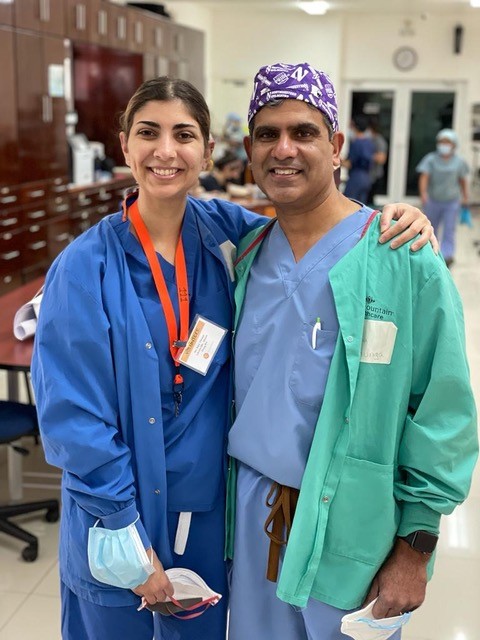Healing Together: How One Family’s Work with One World Surgery Inspires Generations
Volunteering with One World Surgery (OWS) is more than a service opportunity for Dr. Raghu Thunga and his daughter, Sara — it’s a shared calling that has shaped their personal and professional journeys. From the operating room to the pre-op floor, the Thunga family has returned year after year to serve in Honduras and the Dominican Republic. Along the way, they’ve formed lasting connections, rekindled their passion for medicine, and helped patients receive life-changing care.
What inspired your family to get involved with OWS, and what keeps you coming back for multiple volunteer experiences?
Dr. Raghu Thunga: My parents instilled in me the importance of serving others, especially those less fortunate. I’ve tried to pass that same value on to my children. Over the years, my wife, daughter, and both sons have joined me on medical missions. It started with a nonprofit I co-founded with friends from medical school, where we traveled the world providing care. I first connected with OWS to learn from their model and bring best practices back to our work — but after meeting [OWS co-founders] Dr. Peter and LuLu Daly, I realized we had found something truly special. With each trip, we felt more like family. Working alongside my wife and daughter, who are both nurses, has been an incredible joy. The patients we serve and the amazing volunteers we meet are what keep us coming back.
Sara Thunga: My first mission trip was through my dad’s nonprofit, and I just kept going back because it was so meaningful. These experiences gave me a sense of purpose and helped me realize I wanted to pursue medicine. They led me to nursing school, and eventually, to medical school with a focus on women’s health.
Could you each briefly describe your roles and responsibilities during your time volunteering with OWS?
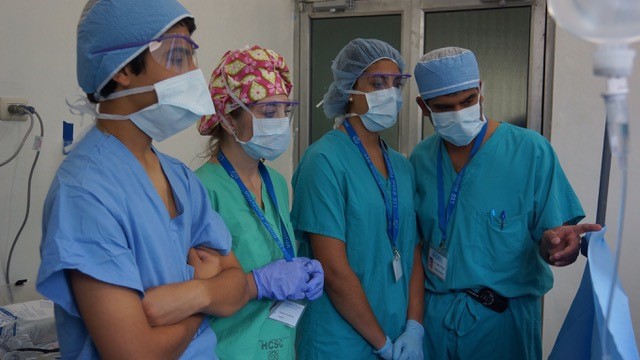
Dr. Thunga: I’m an anesthesiologist and an advisor in areas like anesthesia policy, clinical procedures, and recruiting other physician volunteers.
Sara Thunga: I’ve served as a registered nurse, working in both the pre-op and post-anesthesia care unit (PACU) areas, depending on the needs of the mission. I’ve also had the chance to shadow in the operating room and clinic, which has helped me gain firsthand insight into different specialties.
Can you share a memorable experience or patient case that left a lasting impact on you?
Dr. Thunga: I couldn’t possibly choose just one. These experiences have helped me become a better doctor. When someone is in pain, their background doesn’t matter — everyone deserves the same dignity and compassionate care. The gratitude I’ve received from patients in both Honduras and the Dominican Republic stays with me. It’s deeply humbling.
Sara Thunga: Volunteering with OWS has inspired me to keep serving communities that lack access to care. During my post-baccalaureate program, I joined a street medicine team offering basic healthcare to people experiencing homelessness. I hope to continue this type of work in medical school. These experiences — and the extraordinary volunteers I’ve met — have left a huge impact on me. The people you meet on these trips are some of the kindest, most selfless people you’ll ever encounter.
Sara, what was it like getting to see your dad in action taking care of patients?
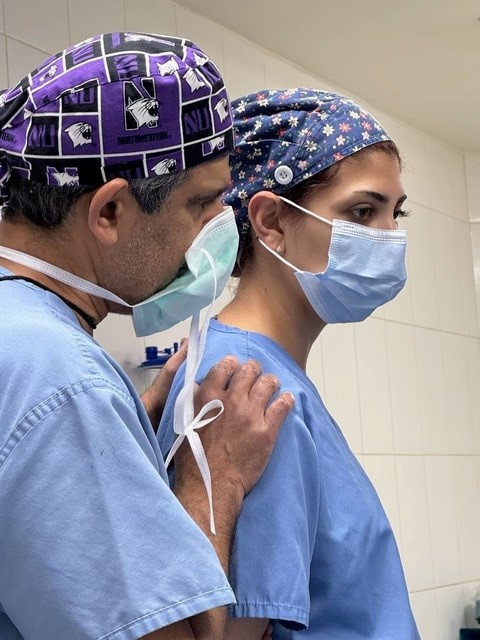
Sara Thunga: It’s been such a rewarding experience to work alongside him as a nurse — and I can’t wait to one day work with him as a fellow physician. I learn something new from him every trip.
What have been some of the most rewarding aspects of your volunteer work with OWS, both personally and as a family?
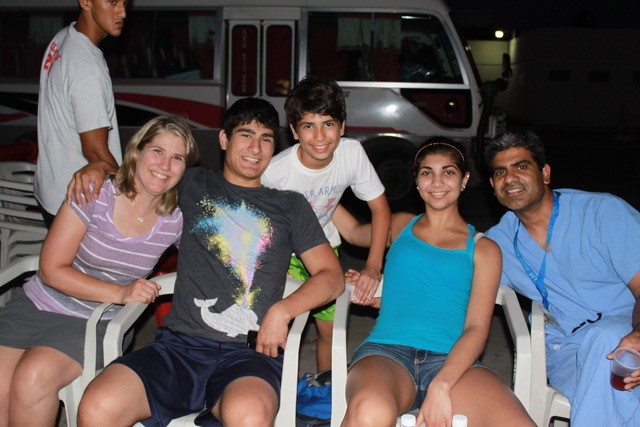
Dr. Thunga: These trips restore my faith in the goodness of humanity. In our day-to-day work, we sometimes see the less inspiring side of the medical world. But on missions, we’re surrounded by people who are humble, generous, and driven by purpose. These are the kinds of people I want my children to learn from — and the people I want to work with myself.
OWS aims to transform lives through surgical care and healthcare training. In what ways do you believe your contributions have made a positive impact on the communities you’ve served?
Dr. Thunga: I want to be a good role model for younger volunteers and help pay it forward. I’ve been lucky in many ways. Life could have taken a very different turn for me, and I try never to take that for granted. If I can help give others a “good turn,” then I’ve done my part.
Sara Thunga: Many of our patients in Honduras and the Dominican Republic have had negative experiences with healthcare, which can make it hard to trust providers. I hope my care helped rebuild some of that trust. I also hope that I’ve inspired fellow volunteers to come back — and maybe even bring family with them, like we did.
For those considering volunteering with OWS, what advice would you give them based on your own experiences?
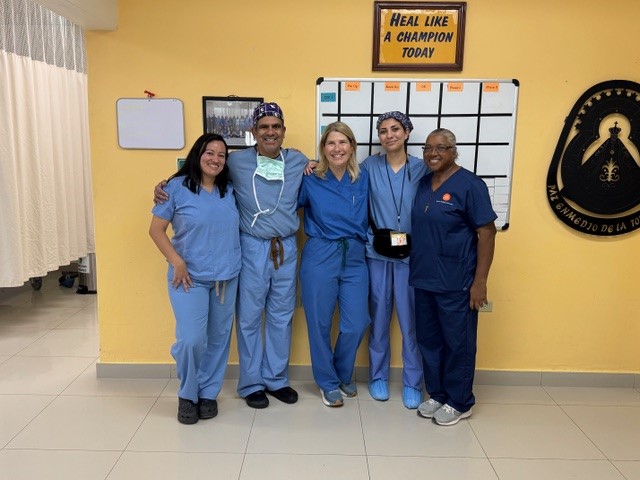
Dr. Thunga: The hardest part is making the decision to go. There are always reasons not to: work, family, money, time. But most of these are rooted in fear, not a lack of willingness. If you can function in your current job, you’ll thrive on a mission. You’ll gain confidence, perspective, and a deeper joy in your work and life. As Gandhi said, “The best way to find yourself is to lose yourself in the service of others.”
Sara Thunga: If you’re considering it, just sign up! It’s a privilege to have medical training, and giving back is one of the best uses of those skills. Talk to as many fellow volunteers as you can — you’ll meet people from all walks of life with incredible stories. I always come back from these trips with new connections and a deeper sense of purpose.
STORIES
